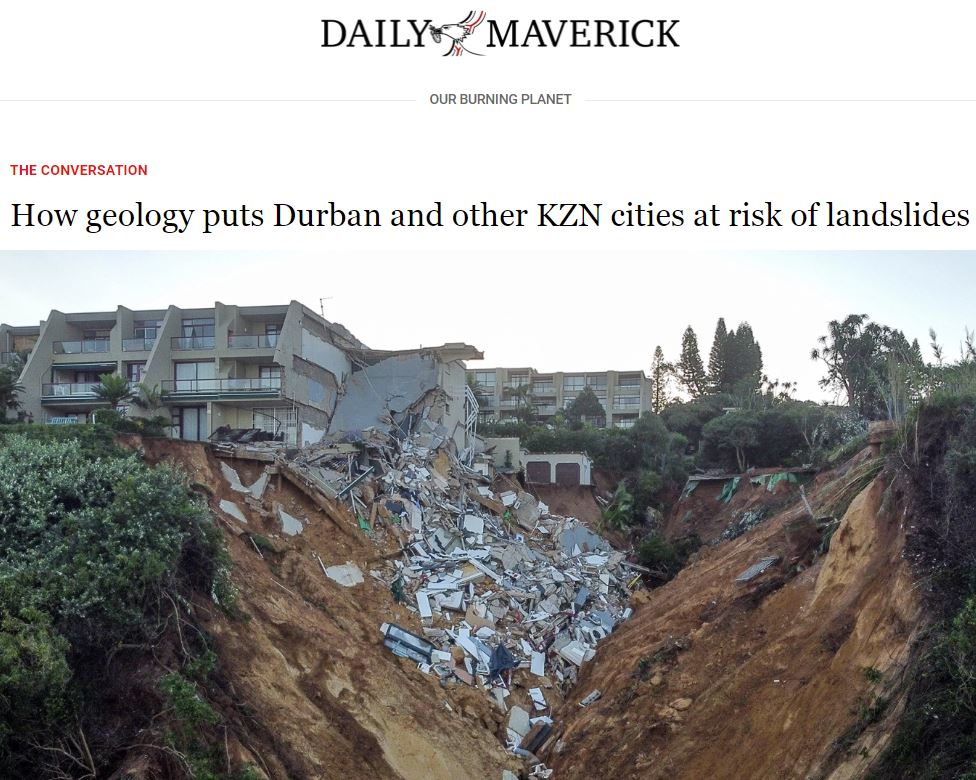How geology puts Durban and other KZN cities at risk of landslides
The Conversation

Some articles have suggested the catastrophes in Durban and the greater eThekwini region of South Africa following recent floods are due to climate change and maladministration. While these factors play a role, the fact that landslides occurred comes as no surprise, considering the geology of the area.
eThekwini is a coastal metropolis characterised by hilly terrain dissected by several major rivers such as the Umgeni, Mlazi and Mbokodweni. The region is subtropical, but recent rains were unprecedented relative to recent records and resulted in multiple landslides.
MacRobert, a geotechnical engineer, studied the effects of water on the stability of the sloping ground. He found that many natural slopes were in a delicate state of equilibrium, i.e. the downward movement of the inclined soil was balanced by the resisting strength between the soil grains.
In eThekwini, combinations of sloping ground, water, and clay left trails of devastation in their wake during the recent floods.
View the full article here.
Abstract based on original source.


Comments